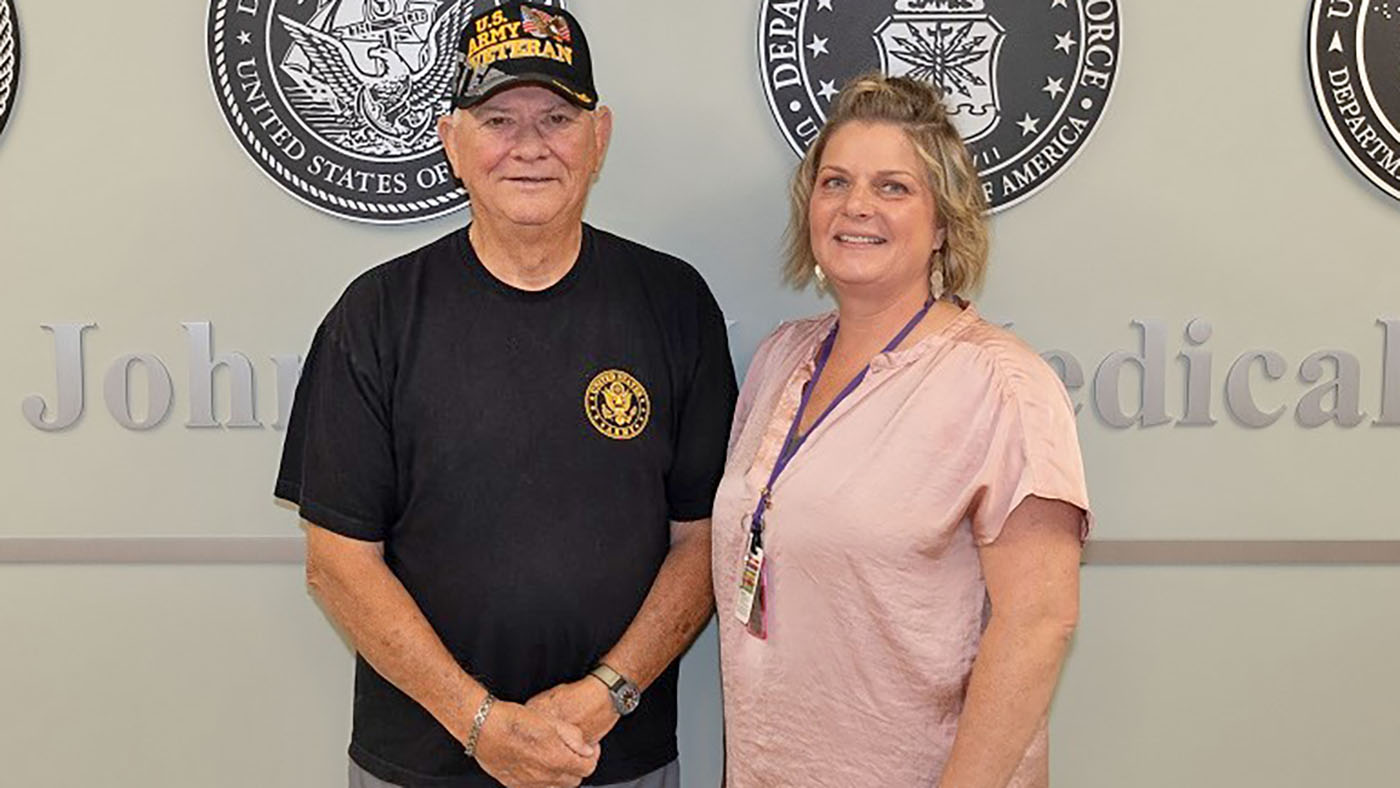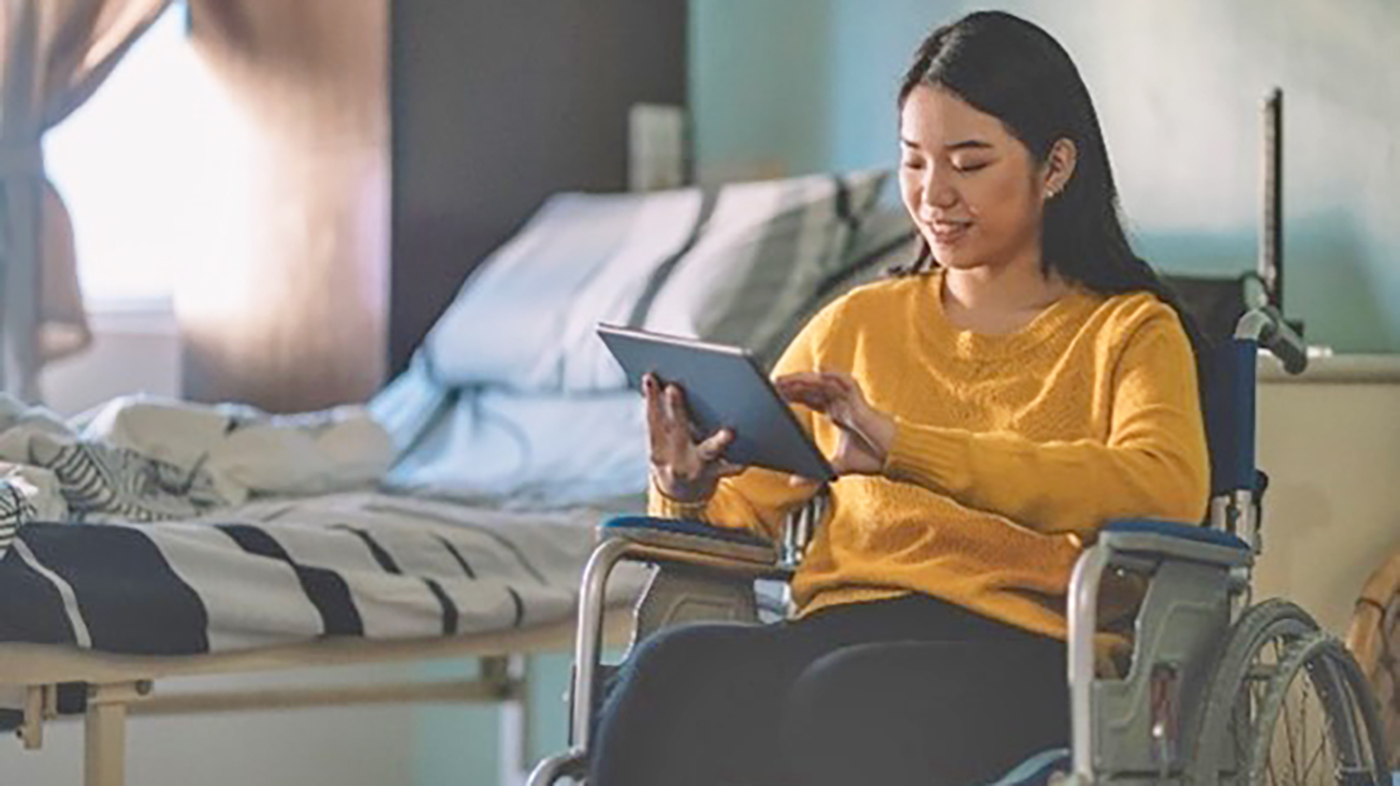Army Veteran Robert Cutchins didn’t know he was experiencing a health emergency. But his Remote Patient Monitoring–Home Telehealth (RPM-HT) Care Coordinator Kristin Moser identified it right away. She noticed a change in his vital signs through VA’s RPM–HT services.
Cutchins says Moser’s care saved his life.
Through RPM–HT, Veterans with chronic or high-risk health conditions can send important health data to their VA care team remotely. The Veteran uses telehealth technology to collect and send readings for blood pressure, blood sugar, heart rate and more. Based on those measurements, the care team can advise on next steps and whether in-person care is needed.
As RPM–HT care coordinator, Moser monitors patient data and helps Veterans arrange treatment changes, clinic appointments and hospital admissions. Moser provides RPM–HT services to Veterans with chronic conditions through Oscar G. Johnson VA in Iron Mountain, Michigan.
“The patients submit their health checks daily, which include vital signs and answers to questions based on their diagnosis. That information comes to me or the other nurses and we review it. Based on the information we get, we call them to get more information, see how they’re doing and provide support, recommendations and education,” Moser explained.
RPM–HT for Veterans in rural Michigan and Wisconsin
Oscar G. Johnson VA provides care to Veterans living in the many rural areas of Michigan and northern Wisconsin. Some Veterans may find it difficult to receive their VA care in person due to long commutes.
Moser checks Cutchins’ vital signs readings daily to ensure high-quality care.
On a Friday in May, Moser noticed an elevated blood pressure reading on Cutchins’ daily health check so she contacted him. He was also reporting symptoms that could be signs of a serious health issue. Moser encouraged him to visit the emergency room, but he was hesitant. Moser provided him with the contact information for the nurse triage line in case of any emergency.
Moser noticed that Cutchins’ symptoms only worsened over the weekend. She scheduled an appointment with his primary care provider and he agreed to visit. Lab work confirmed that his symptoms were heart related and he went to the local emergency room.
Cutchins was transferred to St. Mary’s Hospital Medical Center in Green Bay, Wisconsin. He immediately had emergency surgery to place six stents in his heart’s arteries. The doctor said Cutchins’ heart was 90% blocked and he would not have survived much longer without the procedure.
“She’s my hero because she saved my life.”
Cutchins now calls Moser his hero. “I’m glad Kristin was persistent because otherwise I wouldn’t be around to tell this story,” said Cutchins. “I told her she’s my hero because she saved my life.” (Both are picture above.)
“When something doesn’t feel right and sometimes it’s not more than one vital sign that’s off, we still follow up,” Moser said. “The best that could come out of it is that they didn’t have anything wrong.”
Learn more about VA’s RPM – HT program.
Read more stories regarding Remote Patient Monitoring–Home Telehealth (RPM-HT).
Topics in this story
More Stories
Columbia VA’s robotic surgery teams completed their 800th robotic surgery and are on schedule to hit 1,000 by the end of the year.
In a decentralized clinical trial, Veterans can participate from their own homes or local VA instead of having to travel to a research site.
After serving in the Air Force for 25 years, Larry Wilson is now a My HealtheVet coordinator helping Veterans navigate their care.






